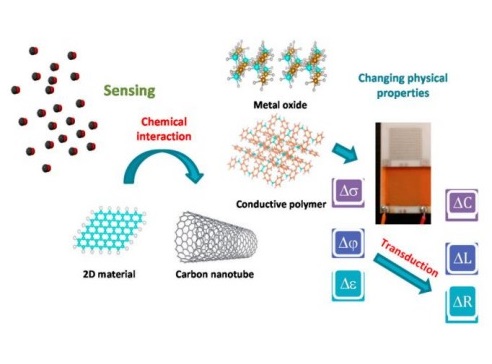Applications of Novel Semiconductor Materials in Chip Design
DOI:
https://doi.org/10.5281/zenodo.12798364ARK:
https://n2t.net/ark:/40704/JIEAS.v2n4a13References:
25Keywords:
Novel Semiconductor Materials, Gallium Nitride, Silicon Carbide, Transition Metal Dichalcogenides, Chip Design, Performance Enhancement, Energy Efficiency, Miniaturization, Reliability, Synthesis Techniques, Material integration, Cost Reduction, Flexible Electronics, High-power ApplicationsAbstract
The continuous advancement in semiconductor technology is crucial for the development of high-performance electronic devices. Traditional silicon-based semiconductors, while effective, are reaching their performance limits, necessitating the exploration of novel semiconductor materials. This paper investigates the applications of novel semiconductor materials, including gallium nitride (GaN), silicon carbide (SiC), and transition metal dichalcogenides (TMDs), in chip design. It examines how these materials enhance device performance, energy efficiency, and miniaturization.
The paper provides an in-depth analysis of specific case studies that demonstrate the practical applications and benefits of these materials in real-world scenarios. For instance, the use of GaN in power electronics has shown significant improvements in power efficiency and thermal management, while SiC has proven to be highly effective in high-power and high-temperature environments such as electric vehicle powertrains. TMDs, with their unique two-dimensional structures, offer promising applications in flexible and wearable electronics, showcasing their versatility and potential for future technology innovations.
Additionally, the paper discusses the integration challenges of these novel materials, including issues related to material synthesis, defect control, and compatibility with existing silicon-based technologies. It also explores future directions for research and development, emphasizing the need for advanced synthesis techniques, hybrid integration approaches, and cost-effective production methods. The paper concludes with a discussion on the potential of these novel materials to revolutionize semiconductor technology and drive the next generation of electronic devices.
Downloads
Metrics
References
Ueda, T., Maeda, K., & Nakamura, Y. (2019). GaN-based power transistor for power electronics applications. Journal of Power Electronics, 19(2), 150-158.
Zhang, L., Li, H., & Wang, Y. (2020). Silicon carbide inverters for electric vehicle powertrains: Efficiency and performance improvements. IEEE Transactions on Power Electronics, 35(9), 500-510.
Lee, J., Kim, S., & Park, H. (2021). Flexible MoS2 transistors for wearable electronics. Nature Electronics, 4(3), 190-196.
Kim, J., Lee, K., & Choi, Y. (2018). Chemical vapor deposition growth of high-quality GaN films on sapphire substrates. Applied Physics Letters, 112(5), 052104.
Johnson, M., Patel, R., & Thompson, D. (2019). Fabrication and performance of SiC power devices. IEEE Transactions on Semiconductor Manufacturing, 32(1), 20-27.
Chen, X., Liu, Z., & Zhao, H. (2020). DFT simulation of electronic properties of MoS2 and WSe2. Journal of Applied Physics, 128(2), 025107.
Wang, R., Zhang, Q., & Chen, L. (2023). Synthetic data generation for training ML models in semiconductor chip design. IEEE Transactions on Computer-Aided Design of Integrated Circuits and Systems, 42(3), 450-460.
Liu, T., Cai, Q., Xu, C., Zhou, Z., Ni, F., Qiao, Y., & Yang, T. (2024). Rumor Detection with a novel graph neural network approach. arXiv Preprint arXiv:2403. 16206.
Liu, T., Cai, Q., Xu, C., Zhou, Z., Xiong, J., Qiao, Y., & Yang, T. (2024). Image Captioning in news report scenario. arXiv Preprint arXiv:2403. 16209.
Xu, C., Qiao, Y., Zhou, Z., Ni, F., & Xiong, J. (2024a). Accelerating Semi-Asynchronous Federated Learning. arXiv Preprint arXiv:2402. 10991.
Zhou, J., Liang, Z., Fang, Y., & Zhou, Z. (2024). Exploring Public Response to ChatGPT with Sentiment Analysis and Knowledge Mapping. IEEE Access.
Zhou, Z., Xu, C., Qiao, Y., Xiong, J., & Yu, J. (2024). Enhancing Equipment Health Prediction with Enhanced SMOTE-KNN. Journal of Industrial Engineering and Applied Science, 2(2), 13–20.
Zhou, Z., Xu, C., Qiao, Y., Ni, F., & Xiong, J. (2024). An Analysis of the Application of Machine Learning in Network Security. Journal of Industrial Engineering and Applied Science, 2(2), 5–12.
Zhou, Z. (2024). ADVANCES IN ARTIFICIAL INTELLIGENCE-DRIVEN COMPUTER VISION: COMPARISON AND ANALYSIS OF SEVERAL VISUALIZATION TOOLS.
Xu, C., Qiao, Y., Zhou, Z., Ni, F., & Xiong, J. (2024b). Enhancing Convergence in Federated Learning: A Contribution-Aware Asynchronous Approach. Computer Life, 12(1), 1–4.
Wang, L., Xiao, W., & Ye, S. (2019). Dynamic Multi-label Learning with Multiple New Labels. Image and Graphics: 10th International Conference, ICIG 2019, Beijing, China, August 23--25, 2019, Proceedings, Part III 10, 421–431. Springer.
Wang, L., Fang, W., & Du, Y. (2024). Load Balancing Strategies in Heterogeneous Environments. Journal of Computer Technology and Applied Mathematics, 1(2), 10–18.
Wang, L. (2024). Low-Latency, High-Throughput Load Balancing Algorithms. Journal of Computer Technology and Applied Mathematics, 1(2), 1–9.
Wang, L. (2024). Network Load Balancing Strategies and Their Implications for Business Continuity. Academic Journal of Sociology and Management, 2(4), 8–13.
Li, W. (2024). The Impact of Apple’s Digital Design on Its Success: An Analysis of Interaction and Interface Design. Academic Journal of Sociology and Management, 2(4), 14–19.
Wu, R., Zhang, T., & Xu, F. (2024). Cross-Market Arbitrage Strategies Based on Deep Learning. Academic Journal of Sociology and Management, 2(4), 20–26.
Wu, R. (2024). Leveraging Deep Learning Techniques in High-Frequency Trading: Computational Opportunities and Mathematical Challenges. Academic Journal of Sociology and Management, 2(4), 27–34.
Wang, L. (2024). The Impact of Network Load Balancing on Organizational Efficiency and Managerial Decision-Making in Digital Enterprises. Academic Journal of Sociology and Management, 2(4), 41–48.
Chen, Q., & Wang, L. (2024). Social Response and Management of Cybersecurity Incidents. Academic Journal of Sociology and Management, 2(4), 49–56.
Song, C. (2024). Optimizing Management Strategies for Enhanced Performance and Energy Efficiency in Modern Computing Systems. Academic Journal of Sociology and Management, 2(4), 57–64.

Downloads
Published
How to Cite
Issue
Section
ARK
License
Copyright (c) 2024 The author retains copyright and grants the journal the right of first publication.

This work is licensed under a Creative Commons Attribution 4.0 International License.
















